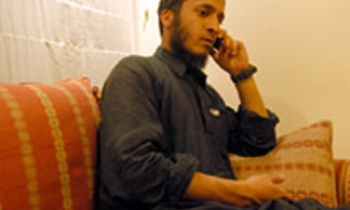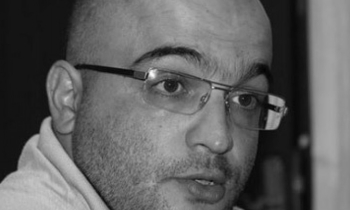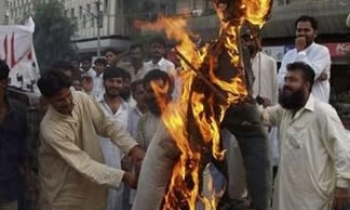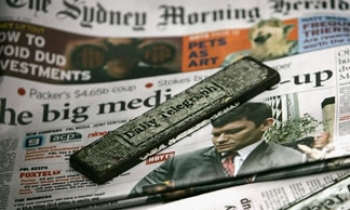The present crisis for the BBC is far worse that at the time of the Hutton Report. Then it was widely believed that the report came down too harshly on the BBC for a minor editorial indiscretion – a live broadcast loosely phrased – in response to complaints made by the government's press officer, revealed in his recent diaries to be an explosively unstable and erratic personality. The BBC, which was after all on the track of the truth, was widely forgiven. Not any more. The errors and deceits practised on the public by the BBC and brought to light in the wake of its gratuitous insult to the Queen will not be forgotten or forgiven. They signal an irretrievable loss of confidence in what has been for so long a unique and great institution.
I have personal experience of working for the BBC going back longer than most. When I arrived there in 1956 I noted that the BBC's dedication in its grand foyer was expressed in Latin, a language understood by most of the public school-educated white men who then ran it. The ethic of the place was implacably high-minded. When the rival commercial channel started up in 1955 one top mandarin could write to another, "We ought to remember that about half the population consists of very simple people with not very much education who look to the BBC for their entertainment and relaxation – and who shall say they are wrong?" And another could declare: "Commercial television is about making money. They're nice people, but they're making money. We're making programmes."
The BBC in the 1970s was strong and confident. And it knew what it did: it made programmes. It was serviced and staffed to produce 85 per cent of its own transmission. It had wardrobe, make-up departments. Design alone employed 750. New recruits, whatever their field, were initiated into how the BBC did things. With the prospect of long years' employment ahead, they absorbed BBC attitudes, its judgements, its almost pious sense of responsibility. The output was phenomenal, and virtually self-contained. The BBC itself actually made some 133 hours of drama series, 146 hours of serials and some 110 single plays a year. It wasn't until 1970 that the BBC went out to seek co-production. All this was possible because the BBC had little to worry about in terms of audiences or money. All that has changed, but expectations about the BBC hark back nostalgically to the ethical standards of those times.
Today the BBC has to live in the real world, not some fancied golden age. In the 1980s along came Thatcher and the management revolution. Men in suits were in the ascendant. John Birt embraced with fervour the culture of management consultants and financial priorities. Values moved from the intrinsic merit of a programme to cost-per-viewer. Thatcher's legislation brought in competition, and independent companies were given a right to BBC airtime. The system was opened up, and attention moved away from simply creating good programmes to providing "what the viewer wants." Audience research, focus groups, trailers, publicity, and marketing all burgeoned and the race was on for jobs, ratings and a place in the schedules.
That trend has cocntinued. The BBC is no longer simply a programme-maker. It is now more like a vast production house, with even its own staff having to bid to channel controllers for a chance to make programmes At the same time television has developed into one of the country's most thriving industries. And with that go employment structures that make it hard for the BBC to cherish its old integrity. The wider culture too has changed, with more young people applying for media studies than apply for science. As a consequence, there is an ever-increasing workforce – much of it casual – eager to find work, simply to get a toehold in a wildly competitive business. Employment is now largely contractual, with short-term contracts the norm, some of them only three months long. Where are these new recruits to find sustained and responsible training and a long enough place in one job to absorb something of the standards that should apply to their working judgements.
At the same time many BBC services are now simply outsourced: not just make-up or wardrobe or design. But with the growth of audience participation you need companies that supply audiences for shows, companies that arrange competitions, companies that fix phone-ins. Someone has to be responsible for knowing what standards they work to, and checking out every time a new resource comes on-stream.
Strangely, in this fevered world of job frenzy, the bureaucrats seem to be doing all right. John Birt was keen on control, setting up layers of management with authority over others. Many are still in place, with different levels of BBC management having oversight of scripts and casting. There are so many people now, all looking over each other's shoulders, that it's easy to see how things go wrong, and bad decisions – about quizzes and phone-ins for example – get made, and then overlooked. Checks and balances often don't do what they're meant to. What's more, in seeking to connect with the public, programmes create a plethora of phone-ins, and solicitations for e-mails in an eagerness to demonstrate that audiences are good. Such anxieties, on which hang future prospects, can tempt people to falsify the evidence.
There's no doubt that much of television culture in general has coarsened. Swearing has become more acceptable. It's considered fine to insult people for laughs. And we tolerate the setting up of human zoos – the equivalent of Bedlam – where inadequate people are set against each other for our amusement. The scandal over cheating is hardly exceptional in society today: companies do it, newspaper proprietors do it, banks, politicians, and celebrities all do it. Now even the BBC does it, and one of Britain's great institutions that held out so long for old-fashioned values is seriously damaged. It will be a long haul restoring its once proud integrity.









